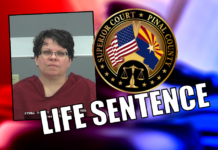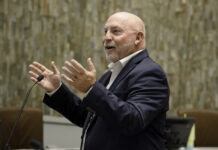
When voters in 2016 approved a 10% budget override for students in the Maricopa Unified School District, they had little idea just how vital the additional funding would become four years later.
Since its approval, the seven-year budget override has generated enough revenue to implement a number of initiatives aimed at improving the quality of education.
MORE COVERAGE: Students can return to classroom Monday, but situation called ‘volatile’
Notably, it facilitated the hiring of new teachers that decreased elementary class sizes from the mid-30s to the mid-20s.
It also improved technology throughout the district, putting computers on the laps of students and thus enabling the district to offer distance learning when the COVID-19 public health crisis erupted last spring.
“Without the override, we would not have been able to do what we did with the technology,” said Superintendent Dr. Tracey Lopeman, noting every student received a device.
“Without the override, we would not have been able to weather this as well as we did,” agreed board vice president AnnaMarie Knorr. “We wouldn’t have had the technology to do virtual.”
In FY 2018, the override brought in $3.5 million to pay the salaries of 50 new teachers, hire tech staff and purchase nearly 700 computers for students. A year later, $3.8 million in override monies was used for 50 more teacher salaries, plus tech staffing, and the purchase of teacher computers and more student technology.
Last year, the measure brought in about $4.9 million. But with the district continuing to deal with the effects of COVID-19 and about to begin construction of a second high school, the district will see less money from the override if it is not renewed by voters before expiring in 2023.
A bond aimed at paying costs associated with the new high school was shot down by voters in November 2019.
“We are at a time to think about the continuation of the override,” Lopeman told the Governing Board at its meeting Wednesday. “We are planning for an election in November. If not, we would begin to lose our funding. We have to take our case to the public now.”
Knorr said students benefited greatly “when the community so graciously passed the override.”
“Class sizes are much, much lower than they were, pre-override,” she said, noting her son was in a class with 34 students. “We don’t have that anymore.”
“We have seen achievement come up, too,” board president Ben Owens noted.
Knorr also said she hoped the growing number of households in the city would mean a reduction for homeowners.
Stressing it was not asking for a new tax, the board voted, 3-0, to approve a motion calling a special election for “straight continuation” of the 10% override. Board member Torri Anderson did not attend the meeting.

![3 things to know about the new city budget Vice Mayor Amber Liermann and Councilmember Eric Goettl review parts of the city's 2024 operational budget with Mayor Nancy Smith on April 24, 2024. [Monica D. Spencer]](https://www.inmaricopa.com/wp-content/uploads/2024/04/spencer-042424-preliminary-budget-meeting-web-218x150.jpg)






![MHS G.O.A.T. a ‘rookie sleeper’ in NFL draft Arizona Wildcats wide receiver Jacob Cowing speaks to the press after a practice Aug. 11, 2023. [Bryan Mordt]](https://www.inmaricopa.com/wp-content/uploads/2024/04/cowing-overlay-3-218x150.png)



![Alleged car thief released without charges Phoenix police stop a stolen vehicle on April 20, 2024. [Facebook]](https://www.inmaricopa.com/wp-content/uploads/2024/04/IMG_5040-218x150.jpg)

![3 things to know about the new city budget Vice Mayor Amber Liermann and Councilmember Eric Goettl review parts of the city's 2024 operational budget with Mayor Nancy Smith on April 24, 2024. [Monica D. Spencer]](https://www.inmaricopa.com/wp-content/uploads/2024/04/spencer-042424-preliminary-budget-meeting-web-100x70.jpg)


